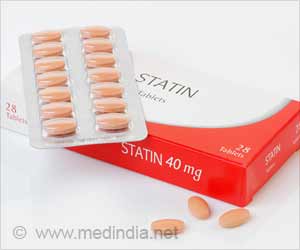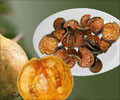Gut microbiome produces high amounts of antioxidants which are found in foods such as black tea, hot chocolate. Difference in gut microbiome is the major reason of higher incidence of colorectal cancer.

‘Antioxidant rich foods like black tea and nuts can actually promote colorectal cancer. Gut flora is majorly responsible for the difference in the incidence of small intestine cancer and colorectal cancer.’
Read More..




To answer this question, Professor Yinon Ben-Neriah at Hebrew University of Jerusalem (HU)'s Lautenberg Center for Immunology and Cancer Research and his team led by Dr. Eliran Kadosh, found that cancer mutations are not necessarily bad actors, in and of themselves. Read More..
In fact, in certain micro-environments like the gut, these mutations can actually help the body to fight cancer, not spread it. However, if the gut microbiome produces high levels of metabolites, like those found in certain bacteria and antioxidant rich foods like black tea and hot cocoa, then it acts as a particularly hospitable environment to mutated genes and will accelerate the growth of bowel cancers. Their breakthrough findings were published in Nature magazine.
Ben-Neriah and his team kept gut microbiomes in mind as they took a closer look at gastrointestinal cancers, and may have found the reason why only 2% of cancers take root in the small intestine, whereas a whopping 98% of cancers take place in the colon. One major difference between these two organs is their levels of gut bacteria: small intestines contain few, whereas colons contain multitudes.
"Scientists are beginning to pay more and more attention to the role gut microbiomes play in our health: both their positive effects and, in this case, their sometimes pernicious role in aiding and abetting disease," explained Ben-Neriah.
A little background. TP53 is a gene found in every cell. It produces a protein called p53 which acts as the cell's barrier, suppressing genetic mutations in the cell. However, when p53 becomes damaged, it no longer protects the cell. Quite the opposite, it drives the cancer, helping tumors spread and grow.
Advertisement
However, when mutated p53 was introduced into the colon, they did not switch but stayed true to their driving-cancer nature and promoted the cancerous spread.
Advertisement
To further test their theory that gut flora was a major factor as to why mutated p53 were acting as tumor blockers in the small bowel but tumor accelerants in the colon, the scientists administered antibiotics to kill off the colon's gut flora. Once they did, the mutated p53 was not able to go on its cancer spree.
What's in this flora that makes colon cancer spread so quickly? A close analysis identified the culprit: gut flora that produces metabolites, aka 'antioxidants', which are found in high concentrations in foods such as black tea, hot chocolate, nuts and berries.
Tellingly, when the scientists fed mice an antioxidant-rich diet, their gut flora accelerated p53's cancer-driver mode. This finding is of particular concern to those patients with a family history of colorectal cancer.
"Scientifically speaking, this is new territory. We were astonished to see the extent to which microbiomes affect cancer mutations--in some cases, entirely changing their nature," shared Ben-Neriah.
Looking towards the future, those at high-risk of colorectal cancer may want to screen their gut-flora more frequently and think twice about the foods they digest, antioxidant and otherwise.
Source-Eurekalert















